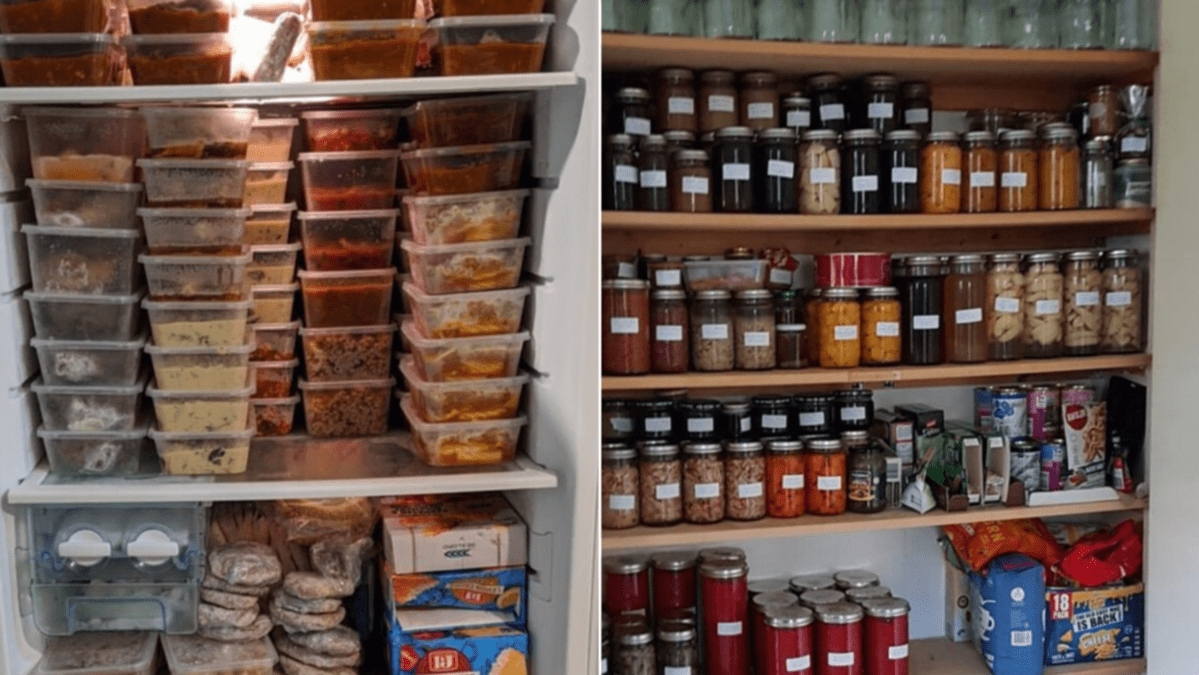Welcome to the world of food storage secrets, where we unmask the myths and reveal the real deal! In today’s article, we are going to delve into the secrets that will ensure your food stays fresh and delicious for longer. So, let’s kick off this exploration by debunking some common food storage myths and discovering the truth behind them. Get ready to be amazed!
Unveiling the Magic: Debunking Food Storage Myths!
Myth 1: Storing Bread in the Fridge Keeps It Fresh
Many of us have been led to believe that popping our bread in the fridge will keep it fresher for longer, but it turns out this is just a myth! In reality, bread stored in the fridge actually goes stale quicker than when kept at room temperature. The cold temperature causes the starch in bread to harden, leading to a less-than-ideal texture. To keep your bread fresh, store it in a cool, dry place like a bread box or a pantry. If you’re concerned about mold, simply freeze half of the loaf and thaw it when needed.
Myth 2: Potatoes and Onions Should Be Stored Together
Contrary to popular belief, potatoes and onions should never be stored together. While it may seem convenient to keep them side by side, this can lead to spoilage. Potatoes release moisture and ethylene gas, which can cause onions to rot faster. To extend the shelf life of both, store potatoes in a cool, dark place with good ventilation, and keep onions in a separate cool, dry area. By following this tip, you’ll have fresh potatoes and onions for longer, ready to add flavor to your culinary creations.
Myth 3: Freezing Milk Ruins Its Taste and Texture
If you find yourself with excess milk, freezing it is a great way to extend its shelf life. Contrary to the myth, freezing milk does not ruin its taste or texture. However, it is important to note that milk expands when frozen, so ensure you leave some room in the container to avoid any messy spills. Once thawed, give it a good shake, and you won’t be able to tell the difference between fresh and frozen milk. So say goodbye to wasted milk and hello to a well-stocked freezer!
Inside Scoop: Experts Share Proven Food Storage Tips!
Now that we’ve debunked some common food storage myths, let’s explore a few proven tips shared by experts to help you store your food like a pro.
Tip 1: The Power of Ziploc Bags
Ziploc bags are a secret weapon when it comes to food storage. They are incredibly versatile and can be used to store leftovers, fruits, vegetables, and even marinate meats. Not only do they keep your food fresh, but they also help prevent freezer burn. Simply squeeze out the excess air before sealing, and you’ll be amazed at how well your food retains its flavor and quality.
Tip 2: Labeling is Key
When storing food, whether in the fridge or freezer, it’s crucial to label your containers or bags. This may seem like a small step, but it can save you from the frustration of playing the guessing game later on. By clearly labeling your food with the date and its contents, you’ll know exactly what you have and how long it has been stored. This will prevent food waste and ensure you use your oldest items first.
Tip 3: Utilize the Power of Vacuum Sealers
If you want to take your food storage game to the next level, consider investing in a vacuum sealer. These machines remove the air from bags or containers, significantly extending the shelf life of your food. Vacuum sealing not only prevents freezer burn but also keeps your food fresh and flavorful for an extended period. It’s a game-changer, especially for those who love to buy in bulk or meal prep.
Food Storage Secrets Unveiled!===
We hope that by debunking some of the common food storage myths and sharing expert tips, we have empowered you to store your food like a pro. Remember, keeping your food fresh and delicious for longer is not just a myth; it’s a reality waiting to be discovered. So, go ahead and put these secrets into practice, and enjoy the benefits of a well-organized and efficient food storage system. Happy storing!

